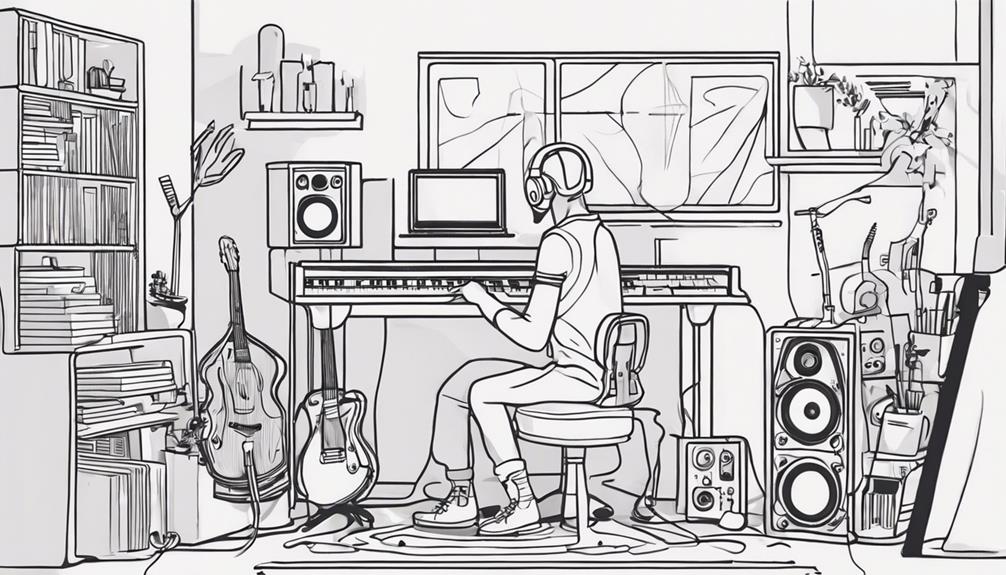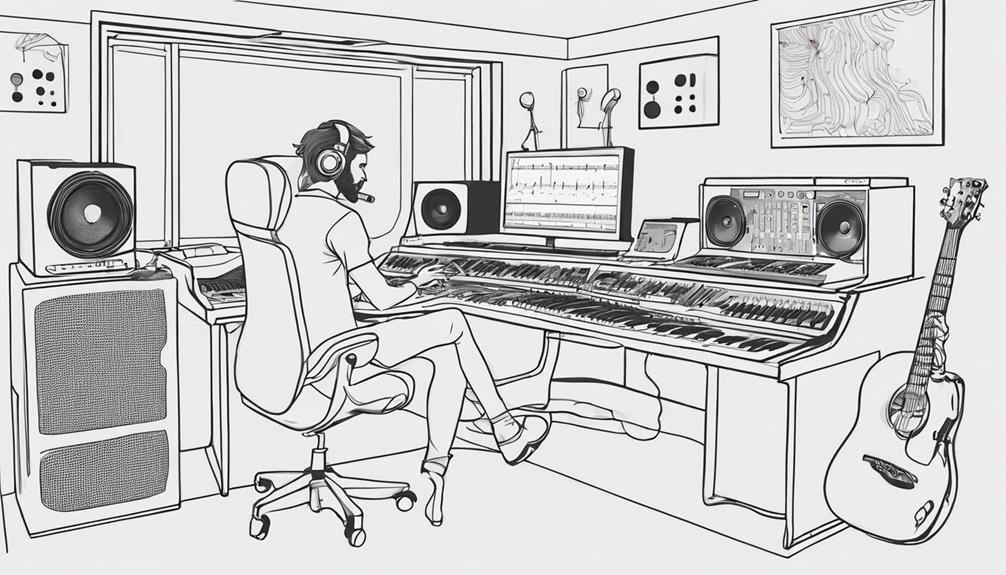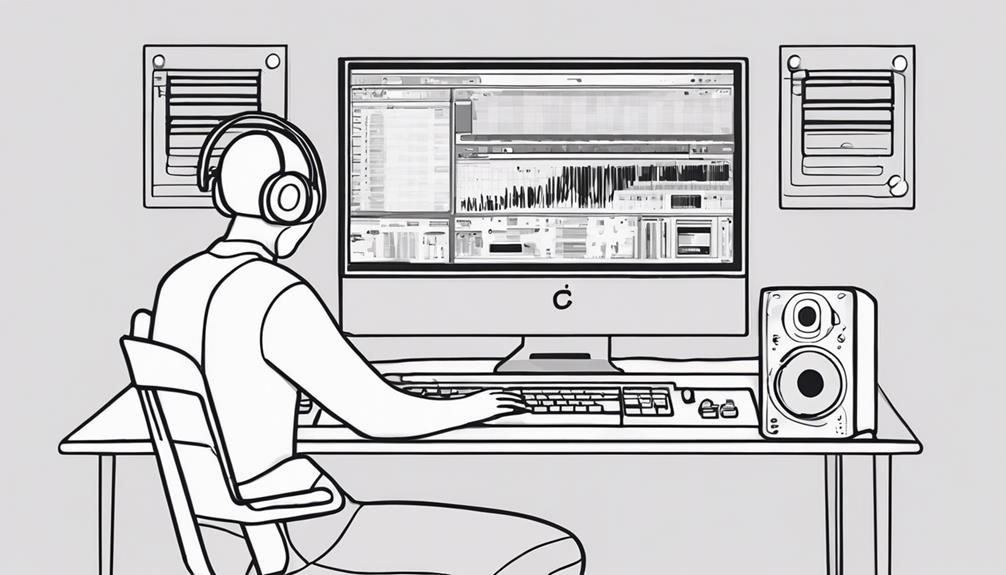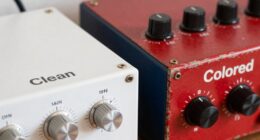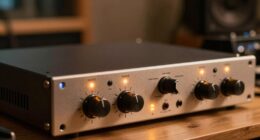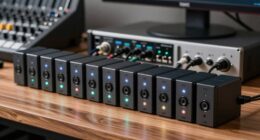Kym Karath, born on August 4, 1958, in the United States, became famous as Gretl. She was the youngest of the Von Trapp children in “The Sound of Music”. She started acting at age 31 and worked from 1963 to 1981, then in 19882. Besides “The Sound of Music”2, Karath also modeled and studied art history2. She got her degree in humanities from the University of Southern California. Then, she studied art history in Paris, France2.
Kym Karath has lived a rich life off-screen too. She was married to Philippe L’Equilbec from 1985 to 2005 and married Jeff Apple in 20162. She and Philippe have a son, Eric, born in 19912. Karath also helped start The Aurelia Foundation. This foundation helps people with disabilities1. She’s waiting for the perfect role to return to acting. Meanwhile, she makes a difference through her charity work1.
Key Takeaways:
- Kym Karath gained recognition for her role as Gretl in the iconic film “The Sound of Music” at a young age1.
- Her acting career spanned from 1963 to 1981 and then resumed in 19882.
- Kym Karath has pursued interests in modeling, art history, and philanthropy12.
- She has been married twice and has a son named Eric2.
- Kym Karath co-founded The Aurelia Foundation to support people living with disabilities1.
Early Acting Career
Kym Karath started acting young, showing her skill and love for it early on. She worked on a number of films that helped shape her career. These roles prepared her for the iconic part of Gretl Von Trapp, making her a well-known actress.
In 1963, Karath landed a role in “Spencer’s Mountain”2. This film tells the story of a close family in the countryside. Her performance here began to turn heads in the movie industry.
That same year, Karath was in “The Thrill of It All”2. A romantic comedy with Doris Day and James Garner, it was a big success. Karath’s natural charm and talent really stood out, catching the eye of many.
Karath continued to impress in 1964 with “Good Neighbor Sam”2. In this comedy, she worked alongside stars like Jack Lemmon. Her role further proved her ability to play different characters well.
Through these early roles, Karath improved her acting skills and opened new doors. Her biggest moment came with “The Sound of Music”3. As Gretl, the youngest Von Trapp, she was unforgettable. Her charming performance won hearts everywhere.
Karath’s early work set her on a path to success in acting. Her talent and the chances she took led to great achievements later on. This was just the start of Kym Karath’s remarkable acting journey.
The Sound of Music
Kym Karath played Gretl Von Trapp in “The Sound of Music”. This film, from 1965, won hearts worldwide. It’s known as one of the best musicals ever. Karath, as the youngest Von Trapp, became very popular.
Even after 60 years, The Sound of Music still captures hearts4. It tells the story of seven children, including Gretl. Kym Karath was one of the two actors under ten. This fact brought special challenges to the production4.
There was a big risk during filming because Kym Karath, or Gretl, couldn’t swim. In a scene with a rowboat, Julie Andrews had to save her. Andrews ended up falling in water too, needing a quick rescue4.
Karath was saved but got sick from swallowing water. This scary event made her afraid of water for life4.
This accident showed the filming risks and lack of precautions. It reminded everyone to care more for the cast and crew’s safety4.
Julie Andrews shared this story in her memoir. It showed a different, tougher side of making this cheerful movie. We learn more about challenges in making The Sound of Music through her stories4.
The Sound of Music keeps winning hearts as a classic. Its story, beautiful scenes, and music remain unforgettable4.

| Character | Actor | Status | Age |
|---|---|---|---|
| Liesl | Charmian Carr | Died in 2016 | 73 |
| Friedrich | Nicholas Hammond | Now | 70 |
| Louisa | Heather Menzies-Urich | Died in 2017 | 68 |
| Kurt | Duane Chase | Now | 70 |
| Brigitta | Angela Cartwright | Now | 68 |
| Marta | Debbie Turner | Now | 64 |
| Gretl | Kym Karath | Now | 62 |
Kym Karath became famous as Gretl. She later graduated from USC. Besides acting, she is also a writer5. Karath appeared in hit TV shows like “The Brady Bunch,” “Lost in Space,” and “The Waltons.”6
But Karath didn’t stop with acting. She started the Aurelia Foundation in 2010. It helps adults with developmental disabilities. They went from helping 12 to 70 people6.
On December 8th, a special The Sound of Music screening will happen in Palm Springs. Karath will host it to help the Aurelia Foundation and the Palm Springs Cultural Center. Tickets cost from $20 to $40. There will also be a VIP meet-and-greet with Karath6.
Kym Karath is staying busy with new projects. She’s leading a film screenplay titled Twenty Boulevard St. Germain. Bruce Beresford will direct it in Paris. Stars like Catherine Deneuve and Vincent Perez will be in it, showing Karath’s ongoing role in acting6.
Key Takeaways:
- Kym Karath’s role as Gretl in The Sound of Music made a big impact.
- Filming posed risks, especially in water scenes for young actors like Karath.
- Julie Andrews’ memoir gives us insider stories, adding to the film’s legacy.
- Karath has done a lot after acting, including writing and charity work.
- The special Palm Springs The Sound of Music screening supports good causes.
- Karath is active in acting, with exciting new projects underway.
Education and Interests
After “The Sound of Music”, Kym Karath focused on her studies. She balanced education with her acting career well.
She went to the University of Southern California. There, she earned a humanities degree7. This showed her desire to learn and explore different subjects.
Kym developed a love for art history in college. She studied different cultures and their art. This sparked her interest in famous artists and their work.
In Paris, her passion for art history grew. She explored the city’s art scene. She visited museums and galleries, gaining deeper insights7.
While in Paris, Kym also tried modeling. This new venture let her express her beauty and poise. She worked with well-known photographers and designers7.
Her studies and interests made her well-rounded. Beyond acting, she embraced art and fashion7. These activities broadened her view of the world.
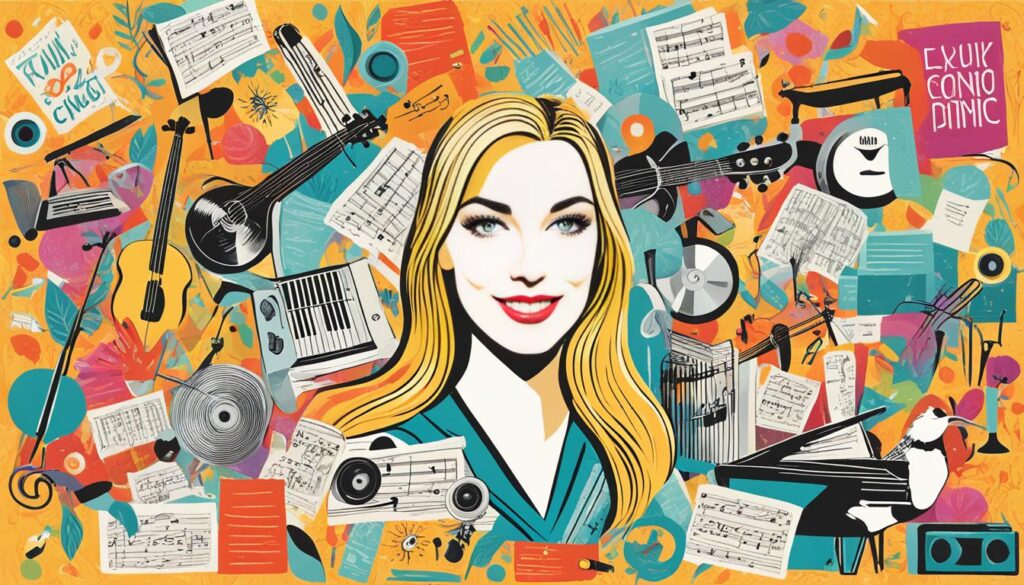
Personal Life
Kym Karath’s personal life includes two marriages. She first married Philippe L’Equilbec in 1985 and they were together until 20052. Her second marriage was to Jeff Apple in 2016, starting a happy new chapter2. Karath lived in Greenwich, Connecticut during a break in her career, enjoying family life and the area’s calm2.
Karath values family highly and has one child, born in 19912. Being a parent brings her great joy. She treasures her relationship with her child deeply2.

A peaceful view of Greenwich, Connecticut – a place Kym Karath called home for a time.
Karath’s love for acting is strong. After a break, she returned to acting in 2005. Her passion for storytelling brought her back to the stage and reignited her creative fire2.
Stay tuned to learn more about Kym Karath’s interesting life beyond The Sound of Music.
Post-Acting Years
After leaving acting, Kym Karath moved to Greenwich, Connecticut8. She took time off to focus on her personal life. She also explored other interests during this break. Despite stepping away, her love for acting stayed alive.
In 2005, Karath chose to return to acting. She moved back to Los Angeles, California. There, she kept chasing her passion for the art8.

Recent Endeights
Kym Karath has stayed busy lately, working on different projects.
She was in a 1970 episode of All My Children, showing her acting range9.
In 1981, she played a big part in the TV movie Midnight Offerings. This role showed her dedication to acting9.
These projects prove Karath’s love for acting goes beyond The Sound of Music10.
Karath’s work over the years shows she’s committed to entertainment. She brings her talent to every part she plays.

Impact of “The Sound of Music”
“The Sound of Music” has left its mark on the world and on Kym Karath. It’s much more than just a movie. It has touched people deeply, in many ways.

Over 250 people worked hard to bring the movie to life. This team included crew members, camera men, and actors11. Their hard work made the film a hit.
When it came out on March 2nd, 1965, “The Sound of Music” was an instant success. Everyone wanted to see it, and movie theaters were full for weeks11. The story, songs, and actors won hearts worldwide.
The film opens with a beautiful scene filmed from above. A helicopter flew 10 kilometers into Bavaria to get it right. They did it ten times because it was tough11.
Filming “The Sound of Music” had its challenges. For example, there were no toilets nearby and Salzburg’s weather was unpredictable11. Still, the team pushed through to make an unforgettable movie.
Because of the film, Salzburg is now known for “The Sound of Music.” Fans come from all over to see its sights11.
Today, Salzburg has tours like the Sound of Music Tour. There are various ones, including private options11.
In 2004/05, there was a special event in Hollywood for the movie. It featured a screening and a Q&A with actors like Kym Karath12.
“The Sound of Music” has become a classic, thanks to Director Robert Wise. He picked this project and it became his most famous work12.
The movie was on a big stage before hitting screens in high-quality format. Filming took 11 weeks in Salzburg13. This captured the area’s beauty.
Richard Rodgers added new songs for the movie. They replaced three from the stage show. The changes brought more awards and recognition13.
| Category | Nominee |
|---|---|
| Best Director | Robert Wise |
| Best Film Editing | William Reynolds |
| Best Music (Scoring of Music–adaptation or treatment) | Irwin Kostal |
| Best Picture | Robert Wise (Producer) |
| Best Sound | 20th Century-Fox Studio Sound Department, James P. Corcoran, Sound Director; and Todd-AO Sound Department, Fred Hynes, Sound Director |
| Best Actress | Julie Andrews |
| Best Supporting Actress | Peggy Wood |
| Best Art Direction | Boris Leven |
| Best Cinematography | Ted McCord |
| Best Costume Design | Dorothy Jeakins |
This data shows the success and influence of “The Sound of Music.” It’s a film that has earned its place in history and in Kym Karath’s career13.
Key Takeaways
- “The Sound of Music” is treasured worldwide.
- A large team worked together to create this iconic film.
- Salzburg is now linked with the movie, attracting many visitors.
- It played a big role in Kym Karath’s career.
References
- Statistical data from link 1
- Statistical data from link 2
- Statistical data from link 3
Life Lessons and Challenges
Kym Karath’s journey in entertainment was full of challenges. As a child actor, she felt the pressure of being famous. She had to deal with Hollywood’s demands while still growing up14. These experiences taught her important life lessons and prepared her for future challenges.
Karath often talks about the problems of child labor in the industry. She highlights the need for protecting young actors14. This ensures they have a safe space to grow. She knows the struggles child actors face without proper support.
She also works with The Hollywood Museum to educate people about child stars14. Her efforts help to bring attention to the difficulties young actors experience. She promotes understanding and empathy through her work.
Despite everything, Karath has remained strong and found success beyond acting. She has tried new things and followed her interests15. Her ability to overcome and succeed shows her resilience and determination.

Kym Karath has encountered many hurdles and learned a lot throughout her life. From her start in Hollywood to her work with The Hollywood Museum, she advocates for change14. Karath’s story inspires others to face adversity and succeed against the odds.
Current and Future Endeavors
Kym Karath earned fame as Gretl von Trapp in “The Sound of Music.” She’s acted for over 56 years16. Now 63, she’s writing a screenplay. It will be filmed in Paris, France, which is exciting for her work.
Though she paused her acting, Karath never quit. She’s ready for a comeback. She knows she’ll captivate us again. Her love for acting and dedication fuel her search for new roles.
Karath’s foray beyond acting keeps her spirit alive16. Her love for stories and characters enriches her screenplay. This new expression of her talent promises an engaging story.

The enduring legacy of “The Sound of Music”
“The Sound of Music” has touched hearts worldwide16. This musical has lived on through TV adaptations. NBC’s 2013 and ITV’s 2015 shows prove its lasting charm.
With the Aurelia Foundation, Karath helps people with special needs16. This program aids in finding them jobs and social activities. It shows the importance of including everyone and offering equal chances.
| Age | Years in the Spotlight | Near-Drowning Incident |
|---|---|---|
| 84 | 74 | – |
| 61 | – | Kym Karath nearly drowned during the filming of “The Sound of Music” at the age of seven17. |
Kym Karath has seen highs and lows in entertainment. Her passion and love for acting helped her through tough times. We’re all excited for her screenplay and the enchantment it will bring.
Conclusion
Kym Karath’s path after “The Sound of Music” is filled with achievements and moments of honor. Despite global challenges, Julie Andrews received the American Film Institute’s Life Achievement Award18. This was a well-deserved accolade. The reunion of Andrews’ co-stars touched fans globally, showing the strong bond formed during the film18. “The Sound of Music” won five Oscars, including Best Picture and Director1819. Unfortunately, not all cast members were alive to see these celebrations. Christopher Plummer, Charmian Carr, and Heather Menzies have passed away18.
Julie Andrews has remained a key figure in entertainment. She narrated Netflix’s “Bridgerton” and voiced in “Minions: The Rise of Gru”18. The film, premiering in 1965, is still loved today1920. Its true-story basis, Salzburg’s beautiful scenery, and unforgettable songs like “Do-Re-Mi” have secured its popularity19.
“The Sound of Music” overcame hurdles, including a controversial alternative ending which was later corrected20. Initially, it wasn’t well-received in Germany and Austria but later gained worldwide popularity20. Now, it’s available on Disney+ in the U.S., reaching new audiences20.
Kym Karath’s role in “The Sound of Music” is part of her diverse career. She’s still beloved in the industry, with her work continuing to inspire18. “The Sound of Music” is a masterpiece that has deeply affected viewers globally1920. Karath’s ongoing journey inspires us all, showcasing the lasting power of film.
FAQ
Who is Kym Karath?
What are some of Kym Karath’s early acting credits?
What is Kym Karath’s most memorable role?
What did Kym Karath do after “The Sound of Music”?
How many times has Kym Karath been married?
Where did Kym Karath live for a period of time?
Has Kym Karath resumed her acting career?
What recent projects has Kym Karath been involved in?
What impact did “The Sound of Music” have on Kym Karath’s life?
What challenges has Kym Karath faced in her career?
What is Kym Karath currently working on?
How Did Kym Karath’s Life Beyond The Sound of Music Compare to Richard Haydn’s Legacy as an Actor and Director?
Kym Karath’s life beyond The Sound of Music pales in comparison when exploring richard haydn’s legacy as an actor and director. While Karath made sporadic TV appearances, Haydn had a prolific career in film and television, leaving a lasting impact on the industry with his versatile talent.
Source Links
- https://www.movieguide.org/news-articles/why-sound-of-music-star-kym-karath-left-hollywood.html – Why SOUND OF MUSIC Star Kym Karath Left Hollywood
- https://en.wikipedia.org/wiki/Kym_Karath – Kym Karath
- https://www.businessinsider.com/the-sound-of-music-cast-today-2021-2 – THEN AND NOW: The cast of ‘The Sound of Music’
- https://collider.com/the-sound-of-music-julie-andrews-kym-karath/ – This Iconic Scene From ‘The Sound of Music’ Almost Turned Fatal
- https://nypost.com/2021/02/05/the-sound-of-musics-von-trapp-kids-where-is-the-cast-now/ – Christopher Plummer dead: Where are ‘Sound of Music’ von Trapp kids now?
- https://www.palmspringslife.com/kym-karath-the-sound-of-music/ – Palm Springs is Alive with The Sound of Music and Former Cast Member
- https://alchetron.com/Kym-Karath – Kym Karath ~ Complete Biography with [ Photos | Videos ]
- https://www.naijanews.com/buzz/people/all-about-kym-karath-heritage-relationship-career/ – All about Kym Karath | Heritage, relationship, career
- https://www.imdb.com/list/ls072538831/ – Child Stars of 1960s
- https://uk.sports.yahoo.com/news/watch-sound-music-stars-surprise-223522363.html – Watch ‘Sound Of Music’ Stars Surprise Julie Andrews With A ‘Do-Re-Mi’ Singalong
- https://www.sound-of-music.com/sound-of-music/the-making-of/ – All about the making of The Sound of Music
- https://www.in70mm.com/presents/1955_todd_ao/1965_sound_of_music/wise/index.htm – Robert Wise and talent’s introduction to “The Sound of Music”
- https://variety.com/1965/film/reviews/the-sound-of-music-2-1200420913/ – ‘The Sound of Music’: Film Review
- https://smdp.com/2012/08/13/looking-out-for-those-with-special-needs/ – Looking out for those with special needs
- https://bradybunchreviewed.wordpress.com/2018/02/02/episode-5-cyrano-de-brady/ – Episode 5: Cyrano de Brady
- https://www.irishmirror.ie/showbiz/celebrity-news/sound-music-child-star-unrecognisable-25789903 – The Sound of Music child star unrecognisable 56 years after von Trapp role
- https://www.dailymail.co.uk/tvshowbiz/article-7579087/Julie-Andrews-recalls-saving-kid-stars-LIFE-boating-scene-Sound-Music.html – Julie Andrews recalls saving kid co-star’s LIFE in The Sound Of Music
- https://ca.movies.yahoo.com/watch-sound-music-stars-surprise-223522363.html – Watch ‘Sound Of Music’ Stars Surprise Julie Andrews With A ‘Do-Re-Mi’ Singalong
- https://www.hollywoodreporter.com/news/general-news/sound-music-review-1965-movie-1090228/ – ‘The Sound of Music’: THR’s 1965 Review
- https://collider.com/the-sound-of-music-alternate-ending/ – ‘The Sound of Music’s Alternate Ending Was a Lot Darker



